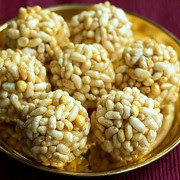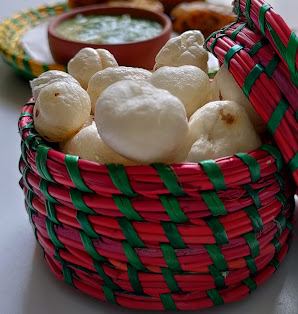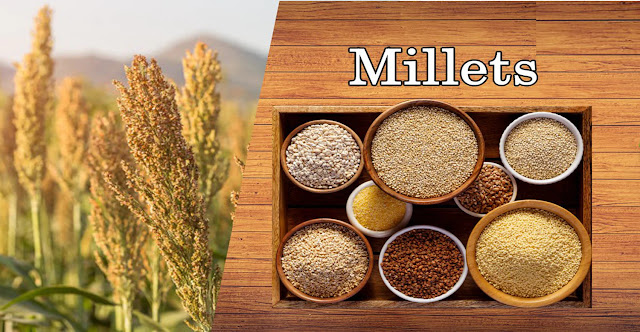Makar Sankranti and Khichdi celebration
Makar Sankranti is one of the few ancient Hindu festivals that has been observed according to solar cycles, while most festivals are set by the lunar cycle of the lunisolar Hindu calendar. The festivities associated with Makar Sankranti are known by various names such as Lohri by north Indian Hindus and Sikhs, Sukarat in central India, Bhogali Bihu by Assamese Hindus, and Pongal by Tamil and other south Indian Hindus.
Makar Sankranti is observed with social festivities such as colorful decorations, rural children going house to house, singing and asking for treats (or pocket money), melas (fairs), dances, kite flying, bonfires and feasts.
A shared cultural practices found amongst Hindus of various parts of India is making sticky, bound sweets particularly from sesame (til) and a sugar base such as jaggery (gud, gur). This type of sweet is a symbolism for being together in peace and joyfulness, despite the uniqueness and differences between individuals.
Makara or Makar Sankranti is celebrated in many parts of Indian subcontinet with some regional variations. It is known by different names and celebrated with different customs in different parts of the region:
Hindus in other countries too celebrate this day, but under different names and in different ways.
In Bihar and Jharkhand, the festival is celebrated on 14–15 January. On this day people of Bihar and Jharkhand made various type of sweets.
Some places in Bihar & Jharkand, there is a tradition to give “Khichdi” to their married daughters.
In this “Khichdi” parents gives new clothes, laddos, sweets made of til(sesame seeds) and gur(jaggery) etc.
Makar Sankranti is observed with social festivities such as colorful decorations, rural children going house to house, singing and asking for treats (or pocket money), melas (fairs), dances, kite flying, bonfires and feasts.
A shared cultural practices found amongst Hindus of various parts of India is making sticky, bound sweets particularly from sesame (til) and a sugar base such as jaggery (gud, gur). This type of sweet is a symbolism for being together in peace and joyfulness, despite the uniqueness and differences between individuals.
Makara or Makar Sankranti is celebrated in many parts of Indian subcontinet with some regional variations. It is known by different names and celebrated with different customs in different parts of the region:
States
|
Name
of festival
|
|---|---|
| Karnataka | Suggi Habba, Makar Sankramana |
| Andhra Pradesh, Telangana, Kerala | Makar Sankranthi |
| Chhattisgarh, Goa, Odisha, Bihar, Jharkhand, Madhya Pradesh, Maharashtra, Manipur, Rajasthan, Sikkim, Tripura, Uttar Pradesh, Uttarakhand, West Bengal and Jammu | Makar Sankranti |
| Tamil Nadu | Thai Pongal, Uzhavar Thirunal |
| Gujarat | Uttarayan |
| Haryana, Himachal Pradesh and Punjab | Maghi |
| Assam | Magh Bihu or Bhogali Bihu |
| Kashmir Valley | Shishur Saenkraat |
| Uttar Pradesh and western Bihar | Khichdi |
| West Bengal | Poush Sangkranti |
| Mithila | Tila Sakrait |
Hindus in other countries too celebrate this day, but under different names and in different ways.
| Nepal | Maghe Sankranti or Maghi, Khichdi Sankranti |
| Bangladesh | Shakrain/ Poush Sangkranti |
| Pakistan(Sindh) | Tirmoori |
In Bihar and Jharkhand, the festival is celebrated on 14–15 January. On this day people of Bihar and Jharkhand made various type of sweets.
Some places in Bihar & Jharkand, there is a tradition to give “Khichdi” to their married daughters.
In this “Khichdi” parents gives new clothes, laddos, sweets made of til(sesame seeds) and gur(jaggery) etc.
 | ||
| LAI |
 |
| Kassar Laddo(Made with roasted rice flour) |
 |
| Tissi/Alsi Laddo |
On 14
January, it is celebrated as Makar Sankranti or Sakraat or Khichdi (in
local dialects). As in other parts of country, people take baths in
rivers and ponds and feast upon seasonal delicacies as a celebration of
good harvest. The delicacies include chura, gur (jaggery), sweets made
of til (sesame seeds) such as tilgul, tilwa, maska, etc., curd, milk and
seasonal vegetables.
The festival is one of the most important. People start their day by worshiping and putting til (sesame seeds) into fire followed by eating "dahi-chura", a dish made of beaten rice (chura or poha, in Hindi, or avalakki, in Kannada) served with a larger serving of dahi (curd), with cooked kohada (red pumpkin) that is prepared specially with sugar and salt but no water. The meal is generally accompanied by tilkut and lai (laddo made of til, chura and rice).
 |
| Chura Dahi |
At night a special khichdi is made and served with its four traditional companions, "char yaar" (four friends) — chokha (roasted vegetable), papad, ghee and achaar. Since such a rich khichdi is generally made on this festival, the festival is often colloquially referred to as "Khichdi".



Comments
Post a Comment
Comments may be moderated. If you don't see your comment, please be patient. It may be posted soon. Do not post your comment a second time. Thank you.
shilpiKitchen.com